Common Core Proposal Unveiled
In November 2017, the University Undergraduate Core Committee was established and charged with the development of a new common undergraduate core which, if implemented, would standardize core requirements across all twelve of SLU’s colleges and schools. At the beginning of October, the UUCC presented a detailed proposal to the SLU community.
The desire to transition towards a common core model is motivated by feedback from current and former SLU students who, according to the UUCC, “desire greater agency, flexibility and conceptual clarity in our Core structure and delivery.” Students also experienced difficulties when changing majors between colleges or schools, and are often dissuaded from doing so because of the current core, which is not standardized.
This proposal is a culmination of a rigorous and involved process which began when the UUCC was first convened. The committee was chosen with cross-campus representation as a goal, and to that end, the University selected representatives from every college, as well as an SGA student representative, to collaborate on the development of a core curriculum which encourages students to be “intellectually flexible, creative and reflective critical thinkers in
the spirit of the Catholic, Jesuit tradition.”
After the committee was chosen, Core Student Learning Outcomes (SLOs) were ratified.These nine outcomes essentially functioned as an enumeration of the objectives that any Common Core proposal should meet. The SLOs stress a commitment to SLU’s Catholic, Jesuit tradition, the development of critical thinking skills and the general attributes of a liberal education.
Once the committee had a ratified set of goals from which to base the common curriculum, they began the difficult process of creating a proposal. The committee engaged in research on core practices at other universities and gathered models with which useful comparisons might be drawn. The committee encouraged campus wide conversation, hosting workshops, guest lectures and other events. To complement the knowledge gained from community outreach efforts, the committee sent out an open call for design submissions, and after receiving thirty-six individual submissions, presented three “Core Prototypes” to the SLU community for additional feedback.
With an abundant amount of feedback, the committee set to work on a synthesis of their research and the feedback kindled by outreach efforts into a Common Core Proposal, which is the product that was first unveiled in an email sent to the SLU community on Oct. 1.
That proposal contains the detailed plan for a thirty-five credit general education experience completed by all baccalaureate students, regardless of major, college, school or campus. The proposed core consists of a number of core areas: the First year experience, Theological and Philosophical Foundations, Eloquentia Perfecta, Ways of Thinking and Collaborative Inquiry. These core areas provide structure and academic rigor while still promoting flexibility and ensures that all students, regardless of major, will be able to complete the core and graduate in four years.
The UUCC hosted two open fora on Oct. 10 and 11 in order to review the development of the proposal and open a dialogue for assessment and critique. Faculty and students from across the SLU community were in attendance, and a number of critical disputes were raised.
For example, some faculty members from the Department of Languages, Literatures and Cultures seemed to be more concerned with what was kept out of the core, rather than what was included. If the proposal is accepted, proficiency in a foreign language will cease to be a requirement, regardless of college or school.
A number of LLC faculty members at the open forum viewed this decision as a betrayal of SLU’s commitment to the Jesuit educational tradition, one of the foundational elements of the nine Student Learning Outcomes. The importance of foreign language study has been integral to the Jesuit vision of education since the first draft of the Ratio Studiorum in 1586, and many faculty members argued that the complete elimination of a language requirement is a step in the wrong direction.
The committee response reasserted that the core is “deeply Jesuit,” both in the theories which underpin it and the courses which students will be required to take, and that the absence of a foreign language requirement is a lamentable but necessary step which other peer universities have taken during the implantation of a common core.
These open fora were a useful opportunity for faculty and students, both undergraduate and graduate, to participate in a vital conversation with the UUCC that ensures all those who will be affected by the transition to a common core have an opportunity to make their voice heard.
The proposal which was sent to the SLU community on Oct. 1 is not the final proposal which will appear to be voted on next year. Feedback received from outreach events, open fora and assemblies will be considered before a final proposal appears, most likely at the start of the spring semester. By Mar. 1, 2020, faculty councils and assemblies from each college or school will hold a “Yes/No” vote on the question of whether the proposal will be adopted as SLU’s Common Core.
Your donation will support the student journalists of Saint Louis University. Your contribution will help us cover our annual website hosting costs.






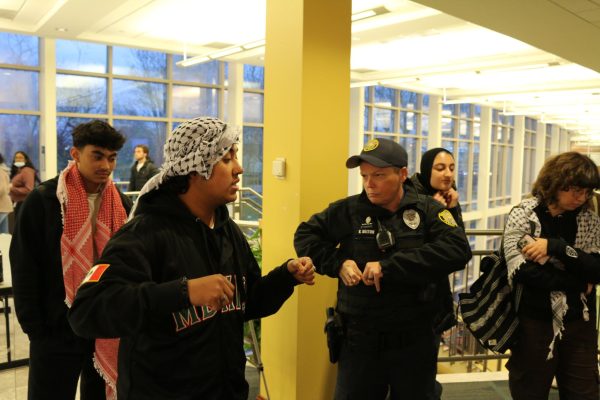
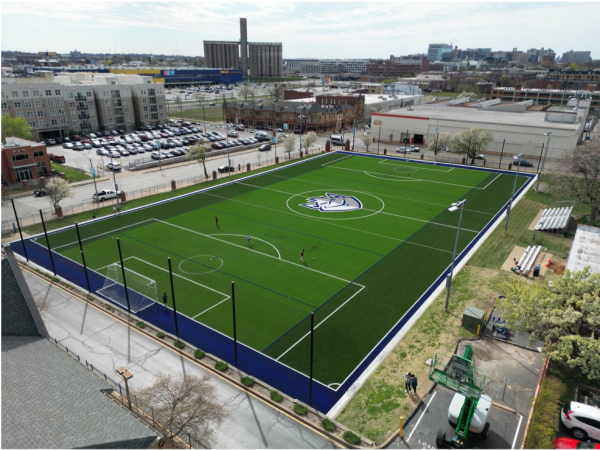

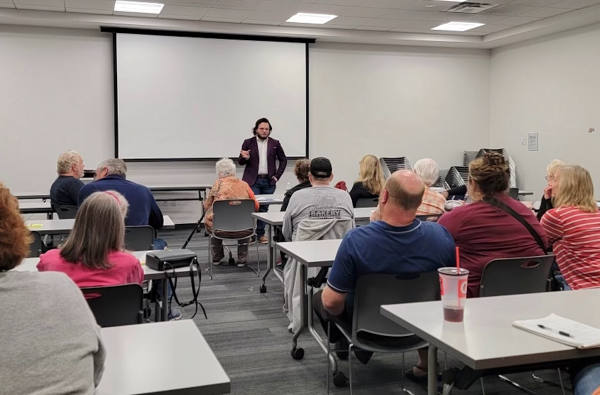
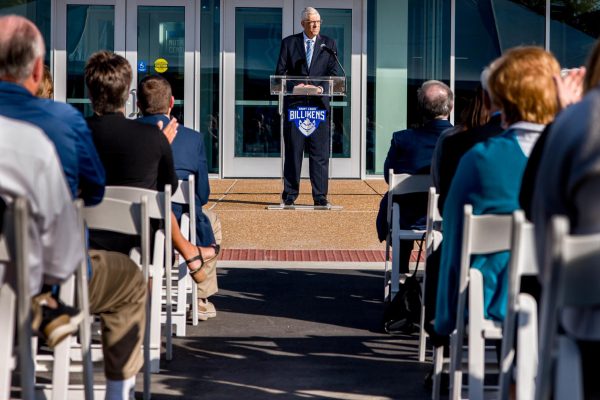
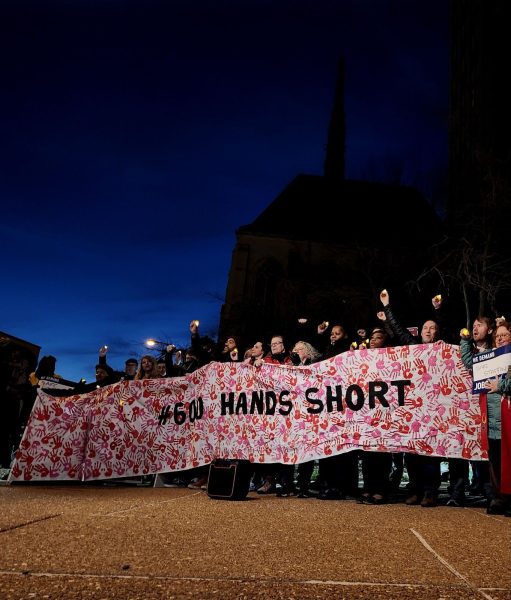
Rubén Rosario Rodríguez • Oct 17, 2019 at 11:37 am
The UUCC states: “the absence of a foreign language requirement is a lamentable but necessary step which other peer universities have taken during the implantation of a common core.” First we need to define peer Jesuit universities. Our closest peers in terms of size, resources and reputation are (1) Boston College, (2) Georgetown University, and (3) Fordham University.
Boston College: “All students in the Morrissey College of Arts and Sciences must, before graduation, demonstrate proficiency at the intermediate level in a modern foreign language or in a classical language. The Carroll School of Management, the Lynch School of Education and the Connell School of Nursing do not have a language requirement.”
Georgetown University: “The study of a language, literature, and culture other than one’s own enables one to understand the world better, to identify commonalities, and to respect cultural differences. All students in the College must demonstrate proficiency in a foreign language (ancient or modern) through the intermediate level.”
Fordham University: “The 2001-level course in a classical or modern language other than English fulfill the language requirement. The goal of the 2001-level course is to achieve a level of mastery of a foreign language that allows students to comprehend a text of average sophistication in its oral and written form, and to be able to comment on it orally and in writing in a coherent and correct manner. It provides either a critical analysis of selected cultural and literary texts, with composition, conversation, and review of pertinent grammar, or advanced readings by classical authors.”
What this SLU Common Core proposal fails to acknowledge is that despite making the move to a university common core, all of our peer and aspirational schools still retain different core requirements depending on what school and college students are enrolled. Furthermore, at all the top peer schools (including the three listed above), their College of Arts & Sciences has retained the foreign language requirement, and done so because it is central to a Jesuit liberal arts education.
I appreciate your summary of the core and the different perspectives voiced on campus in response to this proposal, but I feel it my duty to report that the UUCC is being disingenuous when they say, “the absence of a foreign language requirement is a lamentable but necessary step which other peer universities have taken during the implantation of a common core.”